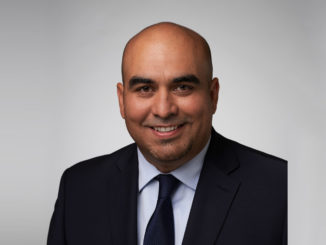During our Host Player Development Conference, hosted in Vegas this past July, we asked our attendees, “What is the hardest part of being a host or being in player development?”
We received quite a few answers and, to be honest, nothing mentioned was a surprise. For those of us in player development, we KNOW this isn’t an easy job. We constantly must navigate obstacles, both internally and externally. Since we carry and use a cell phone for work, it seems as though we are “on” 24/7. I could write a book on all the misconceptions of what someone in player development does, but to make it easier, I will focus on one of the biggest obstacles we face internally on a daily basis: very few of our teammates (including management) understand what player development and hosts do and how it strongly affects the bottom line.
Then and Now
Modern player development is rather new. Back in the days before players club cards, and much of the analysis we depend on today, the main job of a host was “order taking” (taking calls to arrange guest visits) and keeping guests happy while they were at the property … being a “hugger.” It was viewed as a more social position and didn’t really drive revenue – that was left to slots and table games. Because of this, hosts were sucked into doing things that, to be honest, no one else really wanted to deal with. Thus, the disease “call a host-itis” reared its ugly head. Have an angry guest? Call a host. A guest’s car won’t start? Call a host. A guest doesn’t have enough comp available for what they request? Call a host. A guest needs cigarettes? Call a host! I could go on, but the bottom line is that these actions had absolutely nothing to do with the level of play or with driving revenue. Hosts, myself included, were glorified babysitters to most people. Or, as I like to equate it, player development is simply like icing on a cake. If the cake is good enough, icing isn’t needed. Nothing could be further from the truth!
What is player development?
Thankfully, the role of player development has evolved along with casinos themselves. There isn’t a definition in the dictionary of what player development is or what a host does, so at Raving we created definitions by combining casino player (one who plays games of chance) and develop (to expand or enlarge; to improve the quality of; to refine). Based on how player development and the position of host have evolved, the updated definitions are:
Casino Player Development (n.) – The business function of expanding the number of casino players or improving the quality (amount) of their play.
Casino Host (n.) – A casino team member whose primary job duty is to expand the number of known casino players or improve the quality (amount) of their play.
A successful player development program is sales-focused AND revenue-driving using an elite sales team. We don’t use “strong-arm” or high-pressure sales tactics like those annoying telemarketers or devious used car salesmen. Our focus is relationship selling. Relationship selling takes time and there a lot of moving parts. We have to know who we are talking to, what their buy decisions and buy factors are, when to sell (and when NOT to), and, finally, if we haven’t seen them, why. And it doesn’t stop there! Player development must maintain the play of our high-value players, determine who we can grow and develop, as well as acquire new players. All the while answering calls (internal and external), filling events, creating personalized experiences, anticipating guest needs, assisting with guest recovery, dealing with irate guests, and a wide variety of other things that pop up on a daily basis. When revenue takes a downturn, where does management turn? Player development!
Player Development is a Team Sport
The truth is, we cannot do this alone! Player development is a team sport. The most successful player development teams not only develop relationships with our high-value guests, but with our fellow teammates in every department. Hosts are the liaison between the casino and the guest. Hosts depend on fellow teammates to identify players of high value and potential high-value players. Hosts can’t be everywhere, all the time, 24/7. With the gaming industry being such a highly competitive business, our success depends heavily on a team approach. That is the key to not just return business, but to loyalty! The ability to leverage the entire casino to utilize all the people, tools, and amenities (games, player tracking, promotions, food, beverage, hotel, etc.), along with player development will dictate the ultimate success of a gaming company while impacting the development of strong and loyal relationships with guests. Overall, impacting how much money it makes.
Key takeaways:
- Player development is a team sport!
All areas must participate. Because our guests interact with all aspects of the casino, it is imperative that we work as a team. Break down those silos!
- Player development is an elite sales team that drives revenue!
Stop using them to avoid handling situations that either you don’t know how or just don’t want to handle. Don’t tie them up with doing things that don’t drive incremental revenue. Your hosts have sales goals that affect the bottom line.
- Everyone is in sales!
How team members treat your guests is what sells your casino. Guest service and relationship sales should be taught to the entire property, not just the player development team. Great guest service is the difference between guest satisfaction and guest loyalty. Relationships = loyalty; loyalty = revenue.
To learn more about player development training, click here.





